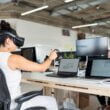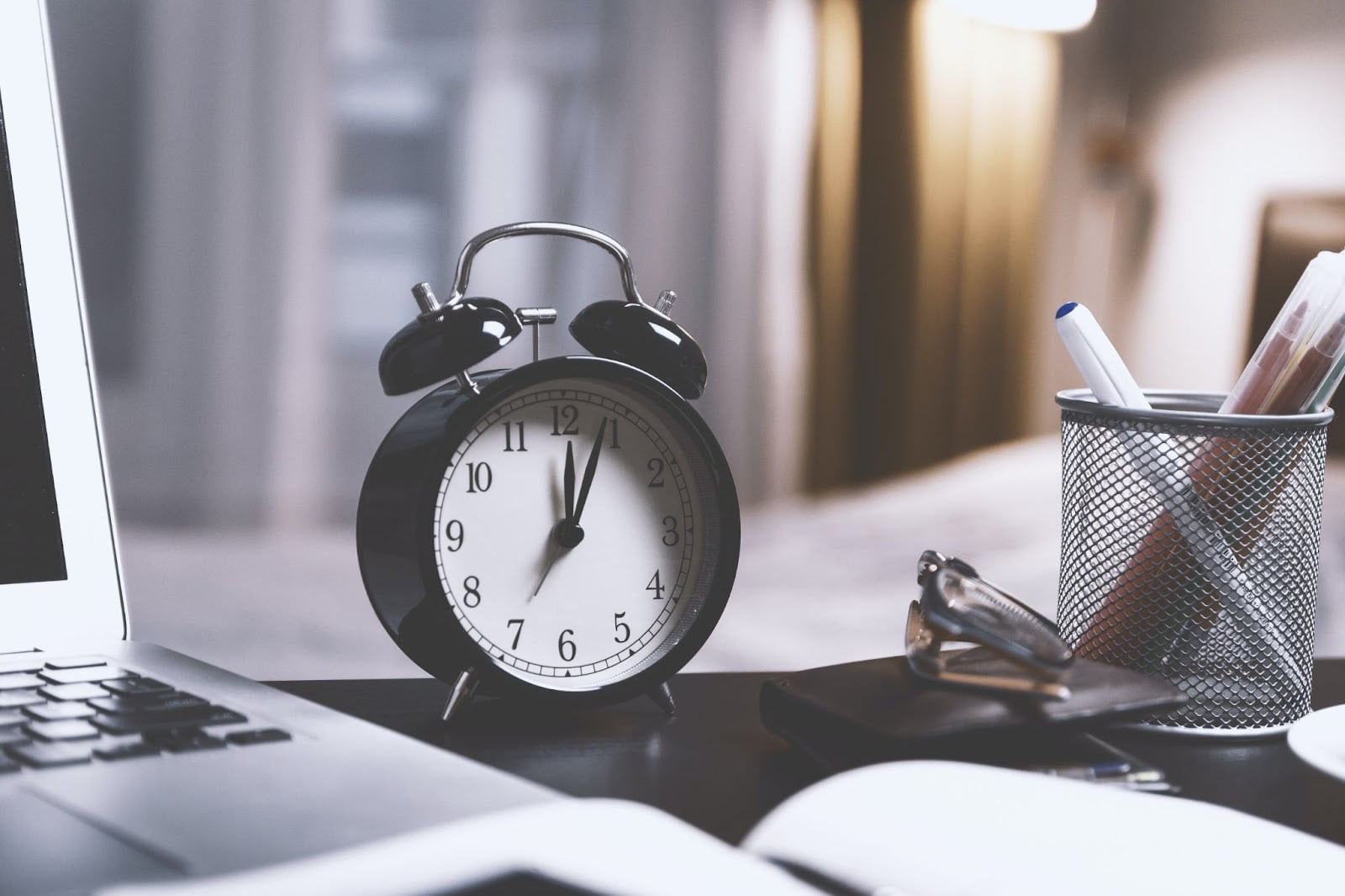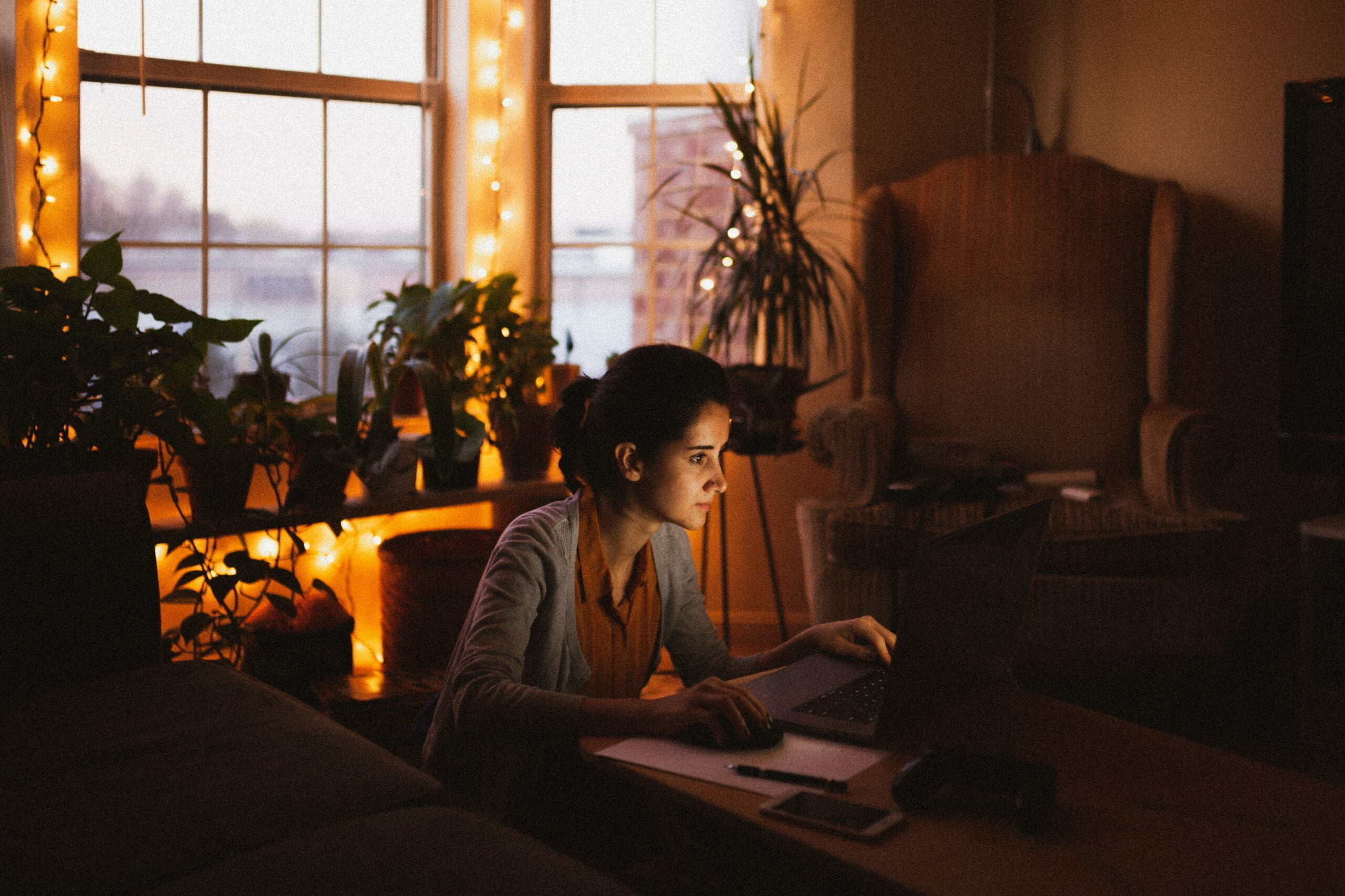With the recent clock change and more businesses making the return to the office a more permanent fixture, it’s important that we can fully adapt to the office environment – this includes taking a look at our sleep schedules!
Easy Offices has teamed up with sleep expert and psychologist, Lindsay Browning to provide the ultimate sleep hacks to leave you feeling refreshed and ready to take on the office again!
Sunset lamps/artificial lighting
Taking over TikTok recently is the sunset lamp trend – where you can produce the calming effects of a sunset, straight from your bedroom, but will they help us with feeling more productive at work?
Dr Lindsay says: “Light provides a natural alarm clock and it’s so important to get increasing light exposure to help you feel more awake and alert, particularly in the mornings. Artificial light can also aid productivity in the office environment, especially bright daylight lamps – helping you to feel more productive when working from dull spaces. Many people use these to directly tackle Seasonal Affective Disorder (SAD) too, but it should be noted that there are certain groups that can’t use these lamps due to specific conditions – every office setting is different. Using lamps later on in the day could also do more damage, as switching off at night is bound to be more difficult.”
Green noise
Taking TikTok by storm at the same time is Green Noise, the latest relaxing sound to help you fall to sleep. Similar to the frequencies of nature, green noise is a combination of natural sounds that focuses on a middle frequency. Could noises for nature-lovers be key to ensuring you feel crisp for work in the morning?
According to Dr Lindsay, “using sound as a background noise has its benefits – especially when used to mask external noises such as traffic, dogs barking, and other distractions. However, they can have a negative effect. Having a noise machine isn’t a blanket solution for everyone – we ultimately sleep best in the quiet and in the dark.”
List-making
One of the common things you’ll hear in the office from colleagues is how they couldn’t get to sleep the night before due to having ‘so much on their mind’. Work can be one of the biggest things keeping us up at night, so how can we tackle it?
Lindsay says, “having a busy mind is a common occurrence with sleep deprivation. Distraction techniques such as dedicated ‘worry-time’ throughout the day can ease our minds when it comes to getting rest later at night. List-making is another way to make worries more digestible before we hit the pillow. The reality is there isn’t a quick fix to having a busy mind, but there are aids you can use throughout the day to support a better night’s sleep.”
Be health aware
It goes without saying that when we look after our health, our sleep patterns improve, along with our productivity. Regular exercise, upping your vitamin intake and a healthy diet are key to better sleep long-term, but it can still be difficult to switch off quickly, even with a healthy lifestyle.
Lindsay says, “The more pressure we put on ourselves to sleep quickly, the less we have the ability to have a relaxed frame-of-mind. Progressive muscle relaxation is a great way to focus your mind on something that isn’t office stress. This is a simple exercise where you relax your muscles, starting from your toes, progressively moving this energy to your ankles, knees and up the body to provide a state of relaxation.”
Sleep therapy (CBT-I)
According to Dr Lindsay, CBT-I is often overlooked when it comes to sleep deprivation solutions too. “CBT-I Is actually the gold standard when it comes to combating sleep deprivation. This form of therapy can often combat sleep deprivation more successfully than any new trend or gimmick. My advice to anyone really struggling would be to book a session – you can even consult your GP for access to free sessions too, which many people aren’t aware of.”
Cognitive Behavioural Therapy for Insomnia (CBT-I) is used to treat this serious sleep disorder, often having an extremely negative impact on our daily lives and work. The treatment is significantly different to other specialist techniques, such as the more well-known CBT. One to try if you’re really struggling!







